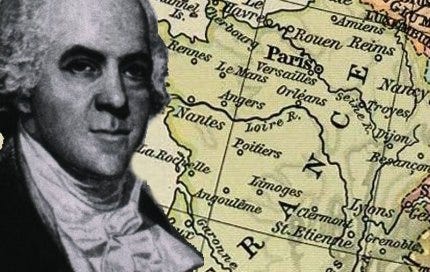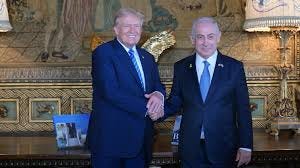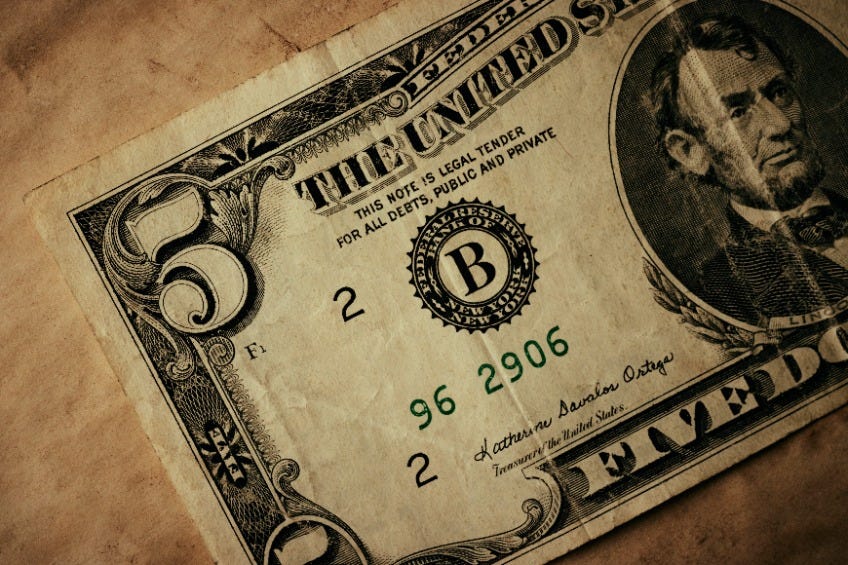The Logan Act
Trump & Co. are flaunting their breaking of this 200-year-old law. Of course they are.
Issue #686 The Choice, Tuesday, July 30, 2024
Do you know you can listen to each “We Are Speaking” post on the Substack App? Download the app!
Help us to reach our July 2024 goals: +150 total new subscribers, including +20 new paid subscribers:
Please share and subscribe to help us grow our publication.
Who are your “Fav Five” who would enjoy “We Are Speaking?” Send them the link!
If you like us, REALLY like us, please click the “Like” button at the end of this post!
We appreciate your support!
George Logan misrepresented himself while negotiating with France.
As we all probably know by now, Donald J. Trump declared in the fall of 2022 his candidacy for re-election to the presidency primarily to keep himself out of jail for the myriad of criminal acts he has committed over the past several years.
Since then, he has worked hard to get his various trials delayed or eliminated altogether, and has been only moderately successful.
As we also know, Donald is so confident that he will win the 2024 election and become a dictator for life that he has already had merch made with the #47 prominently displayed, and just a few weeks ago told his supporters that they won’t have to “worry about voting” ever again.
However, what a lot of people may not know is that ever since he had to leave the White House after he lost—yes, he LOST the 2020 election—he and his allies have secretly been meeting with world leaders to propose and promote their version of autocratic leadership.
Just last week, Trump met with Israel’s Bibi Netanyahu at Mar-A-Lago. Bibi himself is using the war in Gaza to bolster his own troubled administration and delay his own trials and possible jail time.
Bibi wants Trump to win because Trump said that Bibi can do “anything he wants” in Gaza.
So, in addition to all of his other criminal acts, Trump is going against the Logan Act, possibly causing him to be charged with yet another illegal act.
What is the Logan Act?
The Logan Act, enacted on January 30, 1799, is a federal law that criminalizes unauthorized negotiations by American citizens with foreign governments having a dispute with the United States. Named after Dr. George Logan, a Pennsylvania state legislator who undertook an unauthorized diplomatic mission to France during a period of heightened tensions, the act was designed to prevent private citizens from undermining the government's official foreign policy.
The key portion of the Logan Act reads:
"Any citizen of the United States, wherever he may be, who, without authority of the United States, directly or indirectly commences or carries on any correspondence or intercourse with any foreign government or any officer or agent thereof, with intent to influence the measures or conduct of any foreign government or of any officer or agent thereof, in relation to any disputes or controversies with the United States, or to defeat the measures of the United States, shall be fined under this title or imprisoned not more than three years, or both." (Emphasis is mine.)
Modern-Day Incidences of the Act:
In the 21st century, the Logan Act has garnered significant attention during various political controversies. Critics and proponents alike have debated its relevance, particularly in the context of private citizens or former government officials engaging with foreign powers.
Potential Scenarios:
Private Diplomacy: If a private citizen undertakes unauthorized negotiations with a foreign government in an attempt to alter or undermine official U.S. policy, they could potentially be prosecuted under the Logan Act. For example, if a business executive engaged in back-channel talks with a foreign nation during a trade dispute without government authorization, this might trigger enforcement.
Former Government Officials: Former diplomats, cabinet members, or other high-ranking officials who continue to engage in substantive discussions with foreign entities after leaving office could also face scrutiny under the Logan Act. While networking and consultancy are common after public service, any actions perceived as influencing foreign policy without current authorization could be problematic.
Electoral Interference: Allegations of unofficial diplomacy have occasionally surfaced in electoral contexts. For instance, if campaign officials were found to have conducted unauthorized talks with foreign governments to influence U.S. elections, these actions could be examined under the Logan Act.
Challenges in Enforcing the Logan Act
Several factors contribute to the difficulty of enforcing the Logan Act, and we can be sure that Trump will try to exploit them all:
Ambiguity: The act's broad language can make it challenging to determine what constitutes "unauthorized" communication and the intent to influence foreign policy.
First Amendment Rights: The act could potentially conflict with free speech protections, complicating its enforcement.
Proof of Intent: Prosecutors would need to demonstrate that the individual intended to influence the foreign government's actions or undermine U.S. policy, which can be a significant evidentiary hurdle.
Stay tuned, because as Kamala’s changes and Trump’s chances diminish, Trump and the MAGAs will do anything and everything, including illegally, to regain power.
Our paid subscribers are encouraged to comment on this post.
Let’s discuss these facts in our community on Substack Notes. You can also read other Substack publications without subscribing to them when you join Notes.
This post is free to read for three days. To have access 365/24/7 to our full archive, comment on our posts, and financially support “We Are Speaking” for no more than $5 per month, please subscribe at the paid level. You will receive a 7-day FREE trial!







